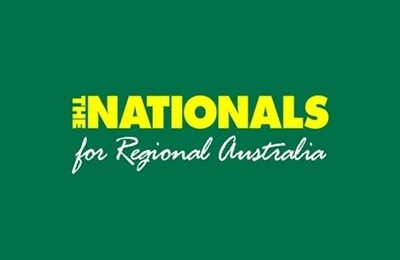$100 million to help primary producers recover from floods
Primary producers affected by the February-March flooding event in NSW can now access additional funding of up to $100,000 thanks to a jointly funded program developed by the Commonwealth and NSW governments.
The $100 million Critical Producer Grant Program will provide primary producers hardest hit by floods with support to restore production systems and rebuild essential infrastructure to a standard that will better withstand future disasters.
Federal Minister for Emergency Management, Senator Murray Watt, said the Australian and New South Wales Governments remain committed to the recovery of flood-affected primary producers.
“We recognise that the farmers and individual families who put food and fibre on our plates have been significantly impacted by these immense flood events,” Minister Watt said.
“These grants will help play an important role in supporting those in the sector who are trying to rebuild and continue producing after overwhelming losses.
“We will continue to work with and listen to all levels of government to provide support where and when it’s needed over the time it takes to recover.”
NSW Nationals Minister for Agriculture Dugald Saunders said the grants will help primary producers in the key agriculture, horticulture, forestry and aquaculture industries get their businesses back on track.
“This package is part of more than $3.5 billion committed by both governments to help communities and industries recover from the devastation of repeated flooding events over the past year,” Mr Saunders said.
“The grants will provide the direct and much-needed assistance many primary producers need to recover, so they can get on with producing the vital products that Australia and the rest of the world relies on.
“Our state’s agriculture, horticulture, forestry and aquaculture industries have played an essential role in building a strong and thriving economy, and we are committed to keeping our farmers and key regional industries in business.”
Federal Nationals Member for Page Kevin Hogan said the funding will help primary producers recover by restocking, replanting and rebuilding essential infrastructure.
“These grants will help play an important role in supporting those in the sector who are trying to rebuild and continue producing after overwhelming losses,” Mr Hogan said.
“I urge eligible local primary producers to make the most of this opportunity and apply for support so they can continue rebuilding their businesses.”
State Nationals Member for Clarence Chris Gulaptis said the grants will help primary producers get their businesses back on track.
“Our state’s agriculture, horticulture, forestry and aquaculture industries have played an essential role in building a strong and thriving economy, and we are committed to keeping our farmers and key regional industries in business,” Mr Gulaptis said.
“The funding in this package will complement the $75,000 Special Disaster Grant already available for impacted primary producers.”
Funding is available to primary producers for:
• Dairy – up to $100,000;
• Extensive livestock, broadacre cropping, turf production and perennial tree crops – up to $75,000;
• Apiary, poultry and pork – up to $50,000;
• Aquaculture, commercial fishers and other horticulture such as berries, vegetables, vine crops, cut flowers and nurseries – up to $30,000, and
• Private native forests and timber plantations – up to $10,000.
The Department of Regional NSW has comprehensively reviewed the impacts from the floods and consulted with industry to ensure this funding meets the unique recovery needs of each of the impacted sectors.
Applications for the Critical Producer Grant program are now open.
For more information and to apply, visit: nsw.gov.au/criticalproducergrant
The Critical Producer Grant Program is designed to complement existing flood-recovery measures for individuals and businesses in disaster-declared regions, many of which are co-funded by the Australian and NSW governments under the Disaster Recovery Funding Arrangements.
The content above from the originating party/author(s) may be of a point-in-time nature and edited for style and length. The views and opinions expressed are those of the original author(s). View original.
AusPol.co Disclaimer
